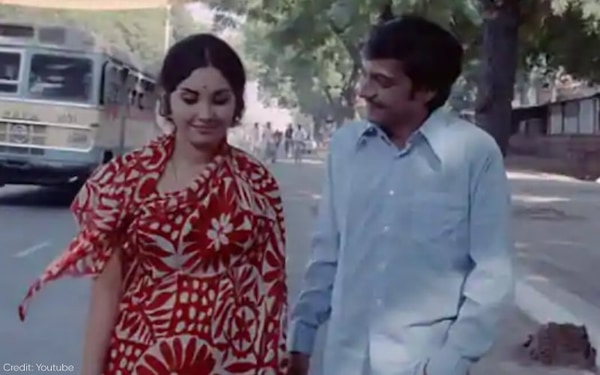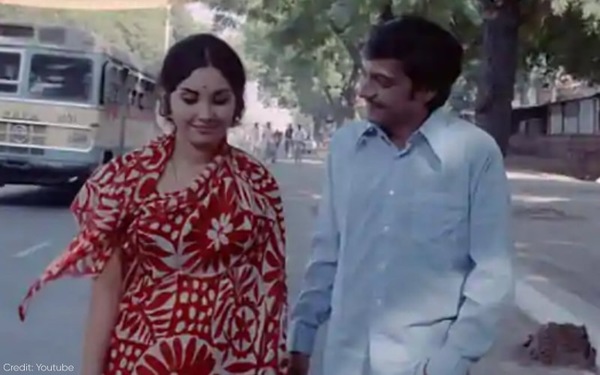Rajnigandha, On Disney+ Hotstar, Shatters Stereotypes Of Hindi Films Of The ’70s

- Isha Anand
Film Companion
Last Updated: 09.13 AM, Jul 07, 2021

The epoch of the ’70s in Bollywood was brimming with potboilers, larger-than-life movies and slapstick comedies. A simple film encapsulating a woman’s emotional turmoil came as a surprise. As I decided to unwind this weekend with my mom by watching an old flick, 20-year-old me had a lot of stereotypes of how a Hindi film was made in the ’70s, which Rajnigandha shattered piece by piece.
The movie, by Basu Chatterjee, is based on Mannu Bhandari’s short story ‘Yahi Sach Hai’ (1966). The protagonist, Deepa, played by the graceful Vidya Sinha, is a research scholar who is in a happy relationship with Sanjay, played by Amol Palekar. Sanjay has innate goodness and his charm lies in his ordinariness. He visits her at home, always arriving with a bouquet of rajnigandha flowers. However, when she encounters an old flame after receiving an interview call from Mumbai, her stance on her current relationship weakens and she is torn between the two men.
The movie is a brave and unorthodox attempt at chronicling the fluctuating sense of desire, aspiration and sentiments one goes through, especially at a young age. When she meets Navin, played by Dinesh Thakur, there is a rush of excitement and she reminisces about her college days with him. She compares him to Sanjay, who is never punctual on dates and incessantly talks about his promotion, whereas Navin pays attention to detail and compliments her on her new saree.
The beauty lies in the ingenious storytelling, the lush green landscapes of Delhi and the earnest performances. There are no hard hitting dialogues or melodramatic montages and actors do not break into illogical songs. The song ‘Kai Baar Yun Bhi Dekha Hai Ye Jo Mann Ki Seema Rekha Hai, Mann Todne Lagta Hai’ (Often it is seen that the heart transcends the boundaries), by Mukesh, captures the essence of the conflict Deepa faces. The beautiful line ‘Kisko meet banaun, kiski preet bhulaun‘ is actually the plot of the movie.
Bhandari, who turned 90 this year, emerged as a revolutionary in the Hindi literary movement by writing independent women who made difficult and different choices. She has written Deepa with so much conviction that I almost felt like she is someone I knew. Her conflict is internalised and never explicitly stated. It’s the old battle of the heart and the mind, truth and deception. Revisit Rajnigandha for the layered characters, the true portrayal of infatuation and the nostalgia it invokes.

 Premium
Premium